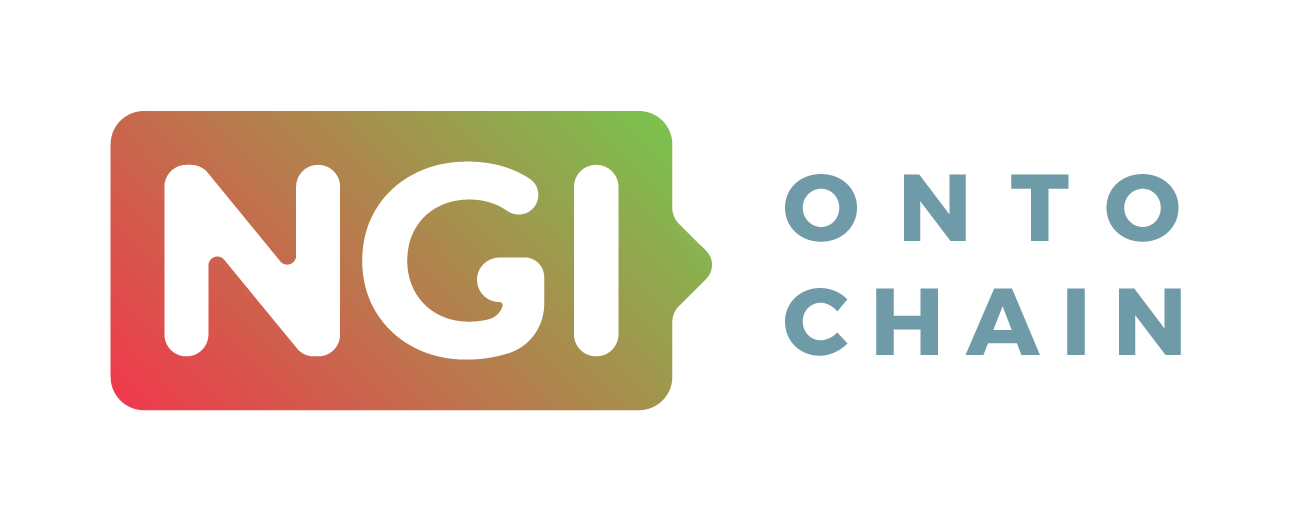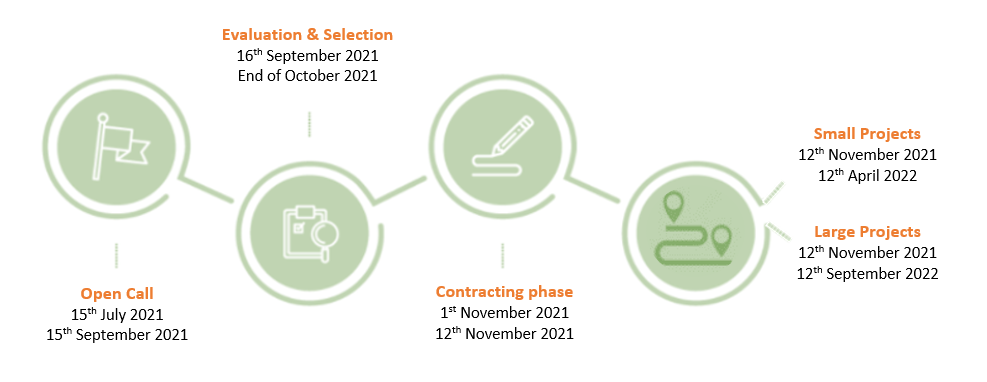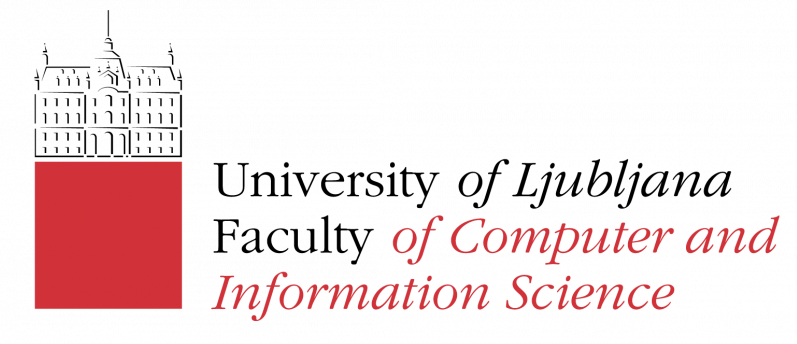ONTOCHAIN OPEN CALL 2
GRANTS UP TO €145K, FREE COACHING AND ACCESS TO TOP INFRASTRUCTURE FOR INTERNET INNOVATORS.
Participate in the co-development of a new software ecosystem for trusted, traceable, and transparent ontological knowledge management.
Apply before the 15th of September 2021, at 17:00 CEST.
From the current Internet standpoint, the way knowledge is generated, curated, shared and stored raises critical concerns about security, privacy, fair and equal distribution of benefits, potential for abuse and adverse impact on individual rights. Citizens, everywhere, are at risk of being presented with partial or biased information reflecting the viewpoint of their provider.
ONTOCHAIN empowers internet innovators to develop trustworthy blockchain-based knowledge management solutions that will be part of a novel software ecosystem. The concept underlying this ecosystem is a better share of knowledge and value on the internet and that for various domains such as health, economy, mobility, public services, energy and sustainability, news, media, entertainment, Industry 4.0, tourism.
Through this second Open Call, up to 12 projects will implement an infrastructure that will host ONTOCHAIN’s trustworthy data, metadata and services, and specific software solutions that can be used widely, further extending the use cases and the architectural features designed by the teams selected through the first Open Call.
Join ONTOCHAIN by submitting a proposal addressing one of the open call topics.
OPEN CALL TOPICS:
Topic 1 - Decentralised oracles for ONTOCHAIN
Activities may focus on designing and developing new decentralised oracle prototypes that rely on advanced technologies, including, but not limited to the areas of IoT, AI, social networking, mobile technologies in the generation of metadata that can be assessed from the viewpoint of trustworthiness and fed to the ONTOCHAIN’s semantic blockchain infrastructure. Novel oracle frameworks for ONTOCHAIN, e.g. based on different topologies or incentive strategies are also in scope.
Approaches should address the problems of detecting, preventing and mitigating sybil attacks (e.g., majority attack, mirroring, freeloading, data corruption) and collusion among oracles, estimating probabilities for trustworthiness, and particularly focus on practical design and implementation challenges which are in the context of the ONTOCHAIN services and applications.
Additional focus is on the high Quality of Service and low operational costs of the oracles, while achieving the same or higher levels of trust. The designed oracles should be implementable within the time period of the project, and should be showcased within the initial applications (e.g. marketplace, part tracing, copyrights and similar).
Other specifications can be found under section 1.3.1 of the Guide for Applicant.
Topic 2 - Market mechanisms for ONTOCHAIN
The challenge perceived is to build an unbiased service/product trading system on top of trustworthy information expressed in Semantic Web formats.
This includes:
- The ability to generate (mint) tokens of various types, i.e., Non-Fungible Tokens (NFTs), Fungible Tokens (FT), Semi-Interchangeable Tokens (SFT).
- Support for building DeFi applications on top of the blockchain, i.e., token/stablecoin trading, interest on deposit accounts, token/stablecoin loans, crypto funds, etc.
- The ability to facilitate the use of various types of tokens throughout the lifecycle of data and services.
- The overall market mechanisms for tokenomics (e.g., token distribution strategies, token sharing for ecosystem sustainability, incentives for nodes etc.)
- Enable stable transaction fees.
Other specifications can be found under section 1.3.2 of the Guide for Applicant.
Topic 3 - ONTOCHAIN interoperability & API Gateways
The challenge is to provide future-proof interoperability by developing a trustworthy, privacy-preserving, secure, transparent, democratic and traceable set of Blockchain APIs based on Semantic Web standards. The APIs must support the exchange of ontologies, of data and metadata, of knowledge and information from different blockchains towards ONTOCHAIN and vice versa.
The proposed solutions must hide the heterogeneity of blockchain protocols which limit application development and can break important properties such as trust, consistency and security of data and services which are all paramount to mass adoption. Information and asset exchanges between chains with different protocols must ensure that semantic information, trust, identities and privacy are preserved while maintaining the highest possible level of security.
Other specifications can be found under section 1.3.3 of the Guide for Applicant.
Topic 4 - ONTOCHAIN Network Design and scalability
- Definition of stakeholders and their requirements.
- Design of flexible services for the ONTOCHAIN ecosystem.
- Deployment of the selected services and testing.
- Optimization and Scalability of the network.
- Operational costs of the network.
Other specifications can be found under section 1.3.4 of the Guide for Applicant.
Topic 5 - Semantic based marketplaces for ONTOCHAIN
Developing a component that offers services similar to existing virtual marketplaces but for arbitrary goods/services, and ensuring the highest level of trust and fairness. The marketplace logic (including the propagation and the matching of market orders) must thus be as decentralized as possible, while offering high performance and low response time.
The solution should leverage ONTOCHAIN services introduced in Open Call 1 for increasing trust between users (e.g., identity, reputation) and be open to all of the present and future ONTOCHAIN stakeholders. In addition to decentralization, particular care must be given to avoiding any censorship, market manipulation (e.g., by hiding, erasing or forging orders or ontological descriptions) and spam attacks. The semantic matching component must guarantee that every offer has been considered, that the returned service/good is always the most appropriate for the user, and that it satisfies every expressed requirement.
Other specifications can be found under section 1.3.5 of the Guide for Applicant.
Topic 6 - Data provenance in ONTOCHAIN
In data lakes, creating a comprehensive immutable audit record of the data, which can be independently verified to ascertain the authenticity of the data is important. In the context of data trading, data owners can prove the legitimacy of owning data and trade it to others or control the number of legitimate copies of the data.
Finally, in the context of business processes, associating a digital token to each high-value item in the supply chain, when the physical item changes hands in the real world, the corresponding digital token is re-assigned in the blockchain. This ensures that the blockchain tracks the journey of the high valued item in the real world. This allows the buyer on receipt of the item to backtrack and verify the chain back to the origin i.e. all the way to the manufacturer.
Other specifications can be found under section 1.3.6 of the Guide for Applicant.
Open Topic
You can submit a proposal under a different topic, as long as it serves as a building block of the ONTOCHAIN infrastructure and the overall ONTOCHAIN vision and objectives:
“Develop scalable blockchain, decentralized reputation systems and semantic web technologies, in order to achieve trustworthy content handling and information exchange as well as trustworthy service exchange in the next generation Internet/social networks for vital sectors of the European economy”.
Excluding ONTOCHAIN applications, to which the open call 3 will be specifically devoted to.
More information can be found on the Guide for Applicant.
WHO CAN APPLY?
Internet technologists, researchers, developers and innovators.
Applicants can apply as individuals or linked to a legal entity. Hence, the participation is possible in several ways:
- Team of natural person(s): Team of individuals, all established in any eligible country. This does not consider the country of origin but the residence permit.
- Legal entity(ies): One or more entities (consortium) established in an eligible country. Universities, research centres, NGOs, foundations, micro, small and medium-sized enterprises (see definition of SME according to the Commission Recommendation 2003/361/EC), large enterprises working on Internet or/and other related technologies are eligible.
- Any combination of the above.
Only Applicants legally established/resident in any of the following countries (hereafter collectively identified as the “Eligible Countries”) are eligible:
- The Member States (MS) of the European Union (EU), including their outermost regions;
- The Overseas Countries and Territories (OCT) linked to the Member States1;
- H2020 associated countries (those which signed an agreement with the Union as identified in Article 7 of the Horizon 2020 Regulation): according to the updated list published by the EC2;
- The UK Applicants are eligible under the conditions set by the EC for H2020 participation and as long as they comply with the same eligibility rules as the other Applicants.
Other eligibility criteria may apply. Please check the Guide for Applicant for more information.
BENEFITS
![]()
Financial support
Grants up to €145.000. The maximum amount of funding that each beneficiary may receive is subject to the legal status of the applicant and the kind of project implemented.
![]()
Access to Infrastructure
All the teams selected will have access if willing and needing so, to the iExec blockchain platform, for their off-chain developments, and to the MyIntelliPatent web application, populated with updated blockchain applications, for patent analysis and monitoring.
![]()
Business services
To support the teams to exploit their use cases and successfully reach the market, different trainings and sessions with mentors will be organised. Depending on the team profile, aspects such as value proposition, pitching or IPR (among others) will be explored.
![]()
Communication services
Major visibility, promotion and networking opportunities are offered as part of the ONTOCHAIN project and the Next Generation Internet initiative.
HOW TO APPLY?
ONTOCHAIN Open Calls will be handled using the F6S platform.
The deadline for submitting your proposal is the 15th September 2021 at 17:00 CEST.
Whether you're thinking of applying, or are already half-way through your application, watch the recordings of the two ONTOCHAIN Open Call webinars, to get more information about the programme and the application process:
TIMELINE
Submission to the ONTOCHAIN Open Call 2 opened on the 15th July 2021 (12:00 PM CEST) and will close on the 15th September 2021 (17:00 CEST).
Dates for the different phases are outlined below but may be subject to change if any modifications in the project’s schedule occur.
SUPPORT MATERIAL AND KIT FOR APPLICATION
- The ONTOCHAIN Open Call 2
This document is the open call announcement.
- The ONTOCHAIN Guide for Applicant
This document provides in detail the information to help apply to the ONTOCHAIN Open Call 2 such as an abstract of the ONTOCHAIN action, a description of the ONTOCHAIN open call 2, the modalities for application, the evaluation process, the scheme of the funding support, the IPR aspects related to ONTOCHAIN and how to prepare and submit a proposal:
The ONTOCHAIN Guide for Applicant
This document also contains in annex the Administrative forms preparation template, the proposal description template and the ONTOCHAIN additional applicant’s template.
- The ONTOCHAIN Application material
- Administrative form preparation template
- Proposal description template
- ONTOCHAIN additional applicant’s template
- The ONTOCHAIN Background
This document describes the ONTOCHAIN project context and the need for means for collective organisation as well as for contribution and use of knowledge thanks to smart solutions that support transparency, trust, plurality and democracy.
- The ONTOCHAIN Indicative Sub-Grant Agreement Form
This is the indicative sub-grant agreement to be signed by the selected teams, acknowledging their rights and obligations.
ONTOCHAIN Indicative Sub-Grant Agreement Form


 This project has received funding from the European Union’s Horizon 2020 research and innovation programme under grant agreement No 957338
This project has received funding from the European Union’s Horizon 2020 research and innovation programme under grant agreement No 957338




